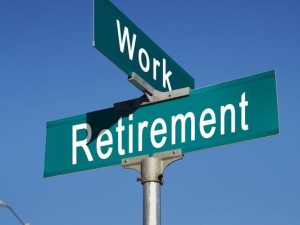Dear Liz: You’ve mentioned that in community property states, a couple’s primary residence gets a full step-up in tax basis when one spouse dies. Does this require that the title to the property specify that it is community property? My husband and I purchased our home about 6 weeks before we were married, so we hold title as joint tenants with rights of survivorship. Should we get the title changed?
Answer: The answer is probably yes, said Mark Luscombe, principal analyst for Wolters Kluwer.
The title to your home does not have to specify that it is community property for it to be treated as community property, Luscome said. If you live in a community property state and are married, the property you acquire and the income you earn during the marriage are generally considered community property regardless of how you hold title. However, property acquired before the marriage would not generally be treated as community property, he said.
The title to your home does not have to specify that it is community property for it to be treated as community property, Luscome said. If you live in a community property state and are married, the property you acquire and the income you earn during the marriage are generally considered community property regardless of how you hold title. However, property acquired before the marriage would not generally be treated as community property, he said.
Each way of holding title has its advantages. Joint tenancy with right of survivorship avoids probate and offers protection from creditors. Community property offers the tax advantage you mentioned: The whole property gets a new basis for tax purposes at the first spouse’s death. That means all the appreciation that occurred before the first death is never taxed. In non-community property states, only the deceased partner’s half gets that new value. Community property states include Arizona, California, Idaho, Louisiana, Nevada, New Mexico, Texas, Washington, and Wisconsin. Alaska is an “opt-in” community property state.
Some community property states offer the best of both worlds by allowing real estate to be titled as community property with right of survivorship. Those states include Alaska, Arizona, California, Idaho, Nevada and Wisconsin, according to self-help site Nolo.
 Today’s top story: Why playing the market right now is an especially bad idea. Also in the news: Is student loan discharge in bankruptcy within reach, the difference between being preapproved and prequalified for a credit card, and how your credit score is determined.
Today’s top story: Why playing the market right now is an especially bad idea. Also in the news: Is student loan discharge in bankruptcy within reach, the difference between being preapproved and prequalified for a credit card, and how your credit score is determined. Today’s top story: Are you saving money in the right place? Also in the news: Why it’s time to dump home buyer love letters, can you be denied life insurance for smoking weed, and 5 fresh kitchen backsplash ideas.
Today’s top story: Are you saving money in the right place? Also in the news: Why it’s time to dump home buyer love letters, can you be denied life insurance for smoking weed, and 5 fresh kitchen backsplash ideas. Today’s top story: Suddenly retired? What to do next. Also in the news: 9 low-cost ways to make virtual learning easier for kids, the safety of air travel right now, and how to get a stimulus check if you’re a low-income earner.
Today’s top story: Suddenly retired? What to do next. Also in the news: 9 low-cost ways to make virtual learning easier for kids, the safety of air travel right now, and how to get a stimulus check if you’re a low-income earner.  Today’s top story: Surprising things renters insurance covers — and leaves out. Also in the news: A new episode of the SmartMoney podcast tackles sudden retirement and finding lost money, using a crisis to help build helpful money habits, and why Powerball and Mega Millions aren’t reaching giant jackpots anymore.
Today’s top story: Surprising things renters insurance covers — and leaves out. Also in the news: A new episode of the SmartMoney podcast tackles sudden retirement and finding lost money, using a crisis to help build helpful money habits, and why Powerball and Mega Millions aren’t reaching giant jackpots anymore. Today’s top story: 3 strategies on how to invest in CDs. Also in the news: Using a crisis to build helpful money habits, ten theme parks celebrating Halloween, and how to sell your car safely.
Today’s top story: 3 strategies on how to invest in CDs. Also in the news: Using a crisis to build helpful money habits, ten theme parks celebrating Halloween, and how to sell your car safely.